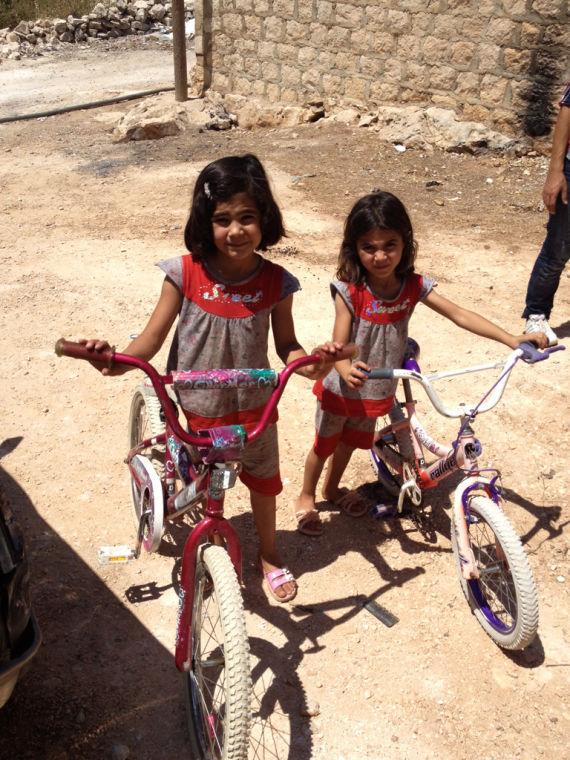Speakers to discuss Syrian Civil War’s repercussions on Monday
October 27, 2013
Although Laila Al-Soulaiman is of Syrian descent, she never called herself Syrian-American until a civil war erupted in Daraa, where some members of her extended family live, and later spread throughout the country.
Al-Soulaiman, a freshman, is one of three speakers who will address the public about the Syrian Civil War at an event hosted by Facilitating Opportunities for Refugee Growth and Empowerment, a Pitt advocacy group also known as FORGE, on Monday. The event, which will start at 8 p.m., will be held in the O’Hara Student Center ballroom.
More than two years ago, Syrian government forces violently suppressed protests by opposition groups in Daraa. An estimated 68,000 civilians and more than 16,600 combatants have died since then at the hands of government forces loyal to Syrian President Bashar al-Assad, according to the website Syrian Martyrs. The site compiles casualty counts from different opposition and human rights groups.
President Barack Obama proposed armed intervention in the country when international observers reported that government forces used chemical weapons against civilians last August. Obama later backed down after coming to a deal with al-Assad in which Syria would dispose of its chemical weapons.
Along with Al-Soulaiman, Dr. Basel Termanini, a local physician who was born in Syria and has been involved in relief efforts there, and Mohammed Bamyeh, a professor of global studies at Pitt, will speak about the conflict that has raged in the country for more than two years.
Termanini and other physicians have taken toys, bikes and medical supplies over to Syria since the crisis began. They have also started two schools for children in Aleppo, which is located northern Syria.
Termanini will speak about the history of the crisis and his experiences involving it, including the history behind the formation of the Free Syrian Army, an armed opposition group that is fighting al-Assad. He will also discuss the peaceful protests by Syrian civilians and the use of chemical weapons in the country.
In Termanini’s opinion, the United States could do more to help those affected by the war.
“The U.S. government has the capacity to give money to the [opposition group] Syrian National Coalition, which has a committee that could supervise education,” he said. “They have no money even to print books. They have projects, but no funding.”
Termanini’s mother still lives in Syria.
“She is suffering, but she is very stubborn,” he said. “She refuses to leave. [There’s] no electricity, no power, no water. Communication is scarce. I can hardly get in touch with her.”
Al-Soulaiman said her family members who still live in Syria have suffered because of the civil war, which is one of the reasons she feels so passionate about the situation in Syria. She learned from a YouTube video that one of her cousins was killed by government forces because he joined a peaceful protest against al-Assad’s regime.
Al-Soulaiman said she has taught students in local school districts about the situation andthinks it is important that Americans understand that the oposition against al-Assad began peacefully.
“I think it’s important to remember that this revolution was started with children writing graffiti on a wall,” Al-Soulaiman said. “No Free Syrian Army existed. These were peaceful protests.”
Al-Soulaiman has received funding from Soup N’at, a local nonprofit that supports local art, for an installation piece called “Red Lines.”
She said the title refers to an imaginary red line that Obama has drawn on the use of chemical weapons, which she said is not the only way the Syrian government has attacked its people. She hopes to put the new piece in Schenley Plaza, where passers-by can see it.
Kush Purohit, a Pitt senior and the co-president of FORGE, said in an email that the group picked these speakers because they all have some sort of strong connection to Syria.
In addition to the three speakers, Purohit and Elizabeth “Biz” Gombert, FORGE’s other co-president, will present a slide show. Members of the audience will also be able to ask the speakers questions and sample Middle Eastern food.
Al-Soulaiman will also talk about the personal aspects of the crisis in Syria and what students can take away from the discussion that Americans can’t necessarily take away from the evening news.
She said that it is important to speak out about the situation in Syria and educate people on what’s really going on there.
“The biggest question I want Americans to ask themselves is, ‘What is the most important contribution I can make?’” Al-Soulaiman said.








